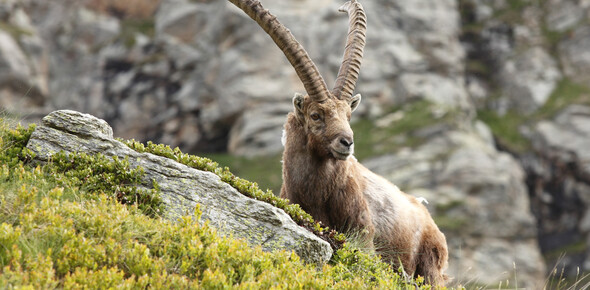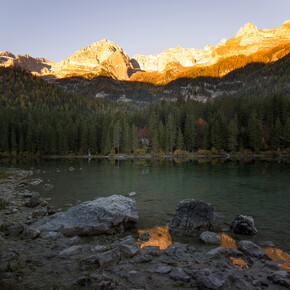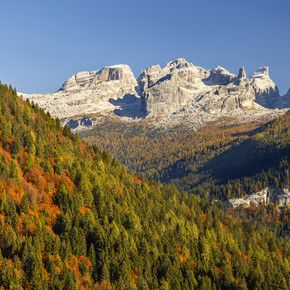Animals of the woods and the wilds
How and where to see them in nature
Deer and roe, foxes and badgers, woodpeckers and black grouse: Trentino’s environmental diversity makes it hospitable to a wide variety of animal species, many of which are typical of Alpine settings, like the Alpine chamois, the capercaillie and the ibex.
Encountering them in their natural habitat can be a deeply moving experience, but sightings are not always easy to come by. When you do spot a wild animal, it is essential to follow specific rules of conduct in order to observe them without being noticed yourself and frightening them.
Here you will find answers to the most frequently asked questions.



